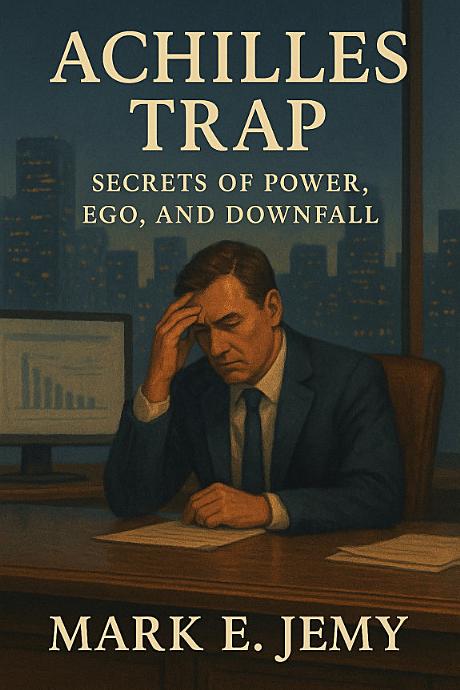Achilles' Trap: Secrets of Power, Ego, and Downfall
Achilles' Trap: Secrets of Power, Ego, and Downfall
Explore the intricate dynamics of power and ego in 'Achilles' Trap.' This fascinating narrative delves into how these forces shape our destinies, revealing the delicate balance between ambition and vulnerability. Through historical analysis and psychological insights, the book examines the complex interplay that can lead to greatness or downfall.
Understanding Power and Ego
Power is an alluring force, often pursued with fervor. However, it comes with inherent risks, especially when intertwined with ego. 'Achilles' Trap' provides a deep dive into historical figures who have risen to power, only to be undone by their own hubris. The book explores the psychological underpinnings of ego and how it influences decision-making and leadership.
Key Themes
- Balance of Power: The fine line between strength and vulnerability.
- Psychological Insights: Understanding the ego's role in leadership.
- Historical Examples: Lessons from the past on power dynamics.
FAQs
What is the main theme of the book?
The main theme is the exploration of power and ego, and how they can lead to a person's rise or downfall.
Who is the target audience?
The book is aimed at readers interested in leadership, psychology, and historical narratives.
Does the book provide historical examples?
Yes, it includes historical examples to illustrate the interplay of power and ego.
Is the book based on real events?
While it includes historical events, the analysis is a blend of fact and interpretation.
What insights does the book offer on leadership?
It offers insights into how ego can influence leadership styles and decision-making.
This work examines the invisible frameworks behind human reasoning — how emotion, perception, and memory form a complex network of ideas that shape our daily behavior. By drawing on modern psychology, the book reveals why we cling to certain patterns of thought and how awareness can shift them.
The result is not just a collection of ideas, but a living dialogue that invites participation, self-inquiry, and perspective.
Ultimately, this book leaves the reader with a sense of clarity and curiosity — a reminder that understanding begins when we dare to question what we think we already know.

